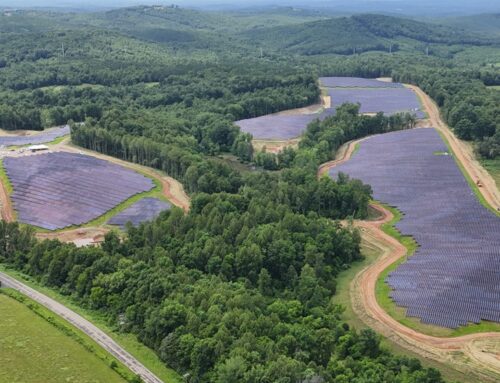The Minnesota Legislature passed a big cannabis bill. Here’s what’s in it.
May 20, 2025
While the Minnesota Legislature failed to approve a budget prior to Monday’s adjournment of the 2025 legislative session, it did pass its cannabis omnibus bill over the weekend.
The bill, SF 2370, was approved by a conference committee with members of both the House and Senate before being passed by both chambers on Saturday. It is currently awaiting Gov. Tim Walz’s signature. The bill contained numerous language and technical fixes, a handful of law changes sought by the Office of Cannabis Management (OCM) and a range of other provisions introduced by lawmakers.
Still up in the air is a proposed increase of the state’s tax on sales of cannabis and hemp-derived cannabinoid products from 10% to 15% that was included in an agreement between Walz and leaders in the Minnesota House and Senate. The tax hike could be part of budget negotiations ahead of an expected special session, though it faces opposition from DFL Sen. Lindsey Port, a co-author of the cannabis bill, as well as Senate Republicans and many advocates.
Here is a brief overview of the bill’s key provisions by topic.
(Sign up for Nuggets, our free weekly email newsletter about legal cannabis in Minnesota.)
- Creates a lower-potency hemp edible wholesaler license that allows the holder to purchase or sell lower-potency hemp edibles to or from licensed cannabis or hemp businesses. Wholesalers must obtain a lower-potency hemp edible importer endorsement from the OCM to import these products from outside Minnesota.
- Allows lower-potency hemp edible manufacturers to produce noncompliant products for sale in jurisdictions outside Minnesota where such products are legal.
- Allows microbusinesses and mezzobusinesses to purchase cannabis products, lower-potency hemp edibles and hemp-derived consumer products from other licensed cannabis or hemp businesses. Mezzobusinesses can grow, manufacture and sell marijuana products; microbusinesses will be allowed to grow, process and sell marijuana products on a relatively small scale — akin to a craft brewery for beer.
- Allows cultivators to sell immature cannabis plants, seedlings and flower to other licensed cannabis businesses.
- Allows municipal cannabis stores to also hold a lower-potency hemp edible retailer license.
- Allows up to 10 milligrams of THC per single-serving beverage container.
- Raises the limit per serving from 25 milligrams to 100 milligrams for the following nonintoxicating cannabinoids: cannabidiol (CBD), cannabigerol (CBG), cannabinol (CBN) or cannabichromine (CBC).
- Allows a patient enrolled in another state’s medical cannabis program to purchase cannabis products from medical cannabis businesses in Minnesota.
- Allows some medical facilities, including nursing homes, assisted-living facilities and boarding care homes, to adopt certain reasonable restrictions on the use and storage of lower-potency hemp edibles, hemp-derived consumer products or hemp-derived topical products. These facilities would not be permitted to unreasonably limit a patient’s access to or use of these products.
- Extends protections for medical cannabis patients to those enrolled in tribal medical cannabis programs.
- Requires the OCM to submit a proposal to the Legislature by Jan. 15 for combining the supply chains for adult-use and medical cannabis and allowing for the efficient cultivation, manufacturing, storage and use of equipment for both types of products. The proposal must also “preserve access to medical cannabis for rare and childhood diseases.”
- Allows licensed cannabis retailers to give away samples of cannabis plants, flower, cannabis products, lower-potency hemp edibles or hemp-derived consumer products during a cannabis event. Samples must be recorded in the statewide monitoring system.
- Requires products given away as samples to contain no more than 1 gram of adult-use cannabis flower or adult-use cannabis concentrate; or 10 milligrams of THC in an edible; or 5 milligrams of THC, 100 milligrams of CBD, CBG, CBN or CBC; or any combination of those cannabinoids that does not exceed the allowed amounts in a lower-potency hemp edible.
- Prohibits retailers from giving away samples to an individual who is visibly intoxicated.
- Allows applicants seeking a cannabis testing facility license to be licensed for up to one year, with a possible extension of up to six months, while they are actively pursuing accreditation.
- Requires the OCM to immediately revoke the license of a cannabis testing facility that loses accreditation.
- Extends social equity status to license applicants who were found delinquent for or received a stay of adjudication for marijuana offenses before May 1, 2023. Social equity applicants include veterans, residents of high-poverty areas and people who’ve been harmed by cannabis prohibition.
- Allows the Cannabis Expungement Board to consider whether expungement should also apply to any dismissed cannabis-related offenses, in addition to an underlying crime should also be expunged.
- Requires courts to order the sealing of all records related to dismissed cannabis-related offenses eligible for expungement.
- Requires courts to order the sealing of all records held by the Department of Corrections or local corrections officials pertaining to probation, incarceration, or supervision for convictions determined to be eligible for expungement.
- Designate the OCM as an agency to allow it to consult and negotiate with tribal governments on policy matters
Search
RECENT PRESS RELEASES
Related Post


